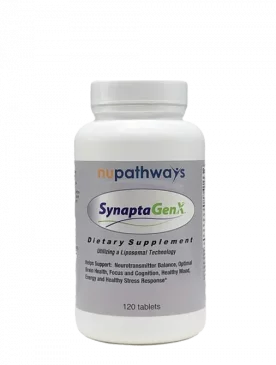“Don’t Ignore the Red Flags: Recognize the Signs of High-Functioning Alcoholism.”
High-functioning alcoholism is a serious issue that can have a devastating impact on an individual’s life. It is characterized by an individual’s ability to maintain a successful career and social life while still struggling with an alcohol addiction. Unfortunately, many people who are high-functioning alcoholics are unaware of their problem and do not seek help until it is too late. This article will discuss some of the red flags that may indicate that someone is a high-functioning alcoholic. By recognizing these signs, individuals can take the necessary steps to get help and begin the journey to recovery.
Warning Signs of High-Functioning Alcoholism: How to Recognize the Red Flags
Are you worried that someone you know may be struggling with high-functioning alcoholism? It can be difficult to recognize the signs of this type of addiction, as the person may be able to maintain a successful career and social life while still drinking heavily. Here are some of the red flags to look out for that may indicate a problem with alcohol.
1. Drinking Alone: If someone is drinking alone, especially in secret, this could be a sign of a problem. High-functioning alcoholics may try to hide their drinking from others, so they can maintain the appearance of having their life together.
2. Drinking to Cope: If someone is using alcohol to cope with stress or difficult emotions, this could be a sign of a problem. High-functioning alcoholics may use alcohol to numb their feelings or to escape from reality.
3. Drinking to Excess: If someone is drinking more than they used to, or more than is considered socially acceptable, this could be a sign of a problem. High-functioning alcoholics may be able to maintain their job and social life while still drinking heavily.
4. Denial: If someone is in denial about their drinking, this could be a sign of a problem. High-functioning alcoholics may be in denial about the amount they are drinking, or may deny that their drinking is a problem.
If you are worried that someone you know may be struggling with high-functioning alcoholism, it is important to reach out and offer your support. It can be difficult to recognize the signs of this type of addiction, but if you are aware of the red flags, you can help the person get the help they need.
The Impact of High-Functioning Alcoholism on Mental and Physical Health
 Alcoholism is a serious and potentially life-threatening condition that affects millions of people around the world. While most people think of alcoholism as a severe problem that requires professional treatment, there is a less-recognized form of the disorder known as high-functioning alcoholism. This type of alcoholism is characterized by an individual’s ability to maintain a job, relationships, and other responsibilities while still drinking heavily.
Alcoholism is a serious and potentially life-threatening condition that affects millions of people around the world. While most people think of alcoholism as a severe problem that requires professional treatment, there is a less-recognized form of the disorder known as high-functioning alcoholism. This type of alcoholism is characterized by an individual’s ability to maintain a job, relationships, and other responsibilities while still drinking heavily.
Unfortunately, high-functioning alcoholism can have a significant impact on both mental and physical health. On the mental health side, individuals with high-functioning alcoholism may experience depression, anxiety, and other mood disorders. They may also struggle with cognitive issues such as difficulty concentrating and memory problems.
On the physical health side, high-functioning alcoholism can lead to a variety of health problems. These include liver damage, heart disease, and an increased risk of certain types of cancer. Additionally, individuals with high-functioning alcoholism may be more likely to engage in risky behaviors such as driving while intoxicated or engaging in unprotected sex.
High-functioning alcoholism is a serious condition that can have a significant impact on an individual’s mental and physical health. If you or someone you know is struggling with this disorder, it is important to seek professional help. Treatment options such as counseling, medication, and support groups can help individuals manage their symptoms and lead healthier lives.
Strategies for Overcoming High-Functioning Alcoholism: What You Need to Know
If you or someone you know is struggling with high-functioning alcoholism, it can be difficult to know where to turn for help. High-functioning alcoholism is a type of alcohol use disorder (AUD) that is characterized by a person’s ability to maintain a seemingly normal life while still drinking heavily. It can be difficult to recognize and even more difficult to overcome.
However, there are strategies that can help you or a loved one overcome high-functioning alcoholism. Here’s what you need to know.
1. Seek Professional Help
The first step in overcoming high-functioning alcoholism is to seek professional help. A qualified mental health professional can help you identify the underlying causes of your drinking and develop a plan to address them. They can also provide support and guidance as you work to make changes in your life.
2. Make Lifestyle Changes
Making lifestyle changes is an important part of overcoming high-functioning alcoholism. This may include avoiding triggers, such as certain people or places, and making healthier choices, such as eating better and exercising more. It’s also important to find new activities and hobbies that don’t involve drinking.
3. Join a Support Group
Joining a support group can be a great way to get the support and encouragement you need to stay on track. Support groups provide a safe and non-judgmental environment where you can talk openly about your struggles and get advice from others who have been in your shoes.
4. Practice Self-Care
Self-care is an important part of overcoming high-functioning alcoholism. This may include getting enough sleep, eating healthy meals, and engaging in activities that bring you joy. It’s also important to practice relaxation techniques, such as deep breathing and meditation, to help manage stress and anxiety.
5. Take Time for Yourself
Finally, it’s important to take time for yourself. This may include setting aside time each day to do something that brings you joy, such as reading a book or taking a walk. It’s also important to take breaks from work and other responsibilities to give yourself time to rest and recharge.
High-functioning alcoholism can be difficult to overcome, but it is possible. By seeking professional help, making lifestyle changes, joining a support group, practicing self-care, and taking time for yourself, you can take steps towards a healthier and happier life.In conclusion, it is important to be aware of the signs and symptoms of high-functioning alcoholism. If you or someone you know is exhibiting any of the red flags mentioned above, it is important to seek help. High-functioning alcoholism can be a difficult condition to recognize and can have serious consequences if left untreated. With the right support and treatment, it is possible to overcome this condition and lead a healthier, more fulfilling life.
If you think you may be a high-functioning alcoholic, it’s important to take action now. Recognizing the red flags is the first step. If you’re experiencing any of the signs of high-functioning alcoholism, don’t wait to get help. Visit Addiction Supplements to learn more about SynaptagenX, a natural supplement that can help you break free from alcohol addiction.






